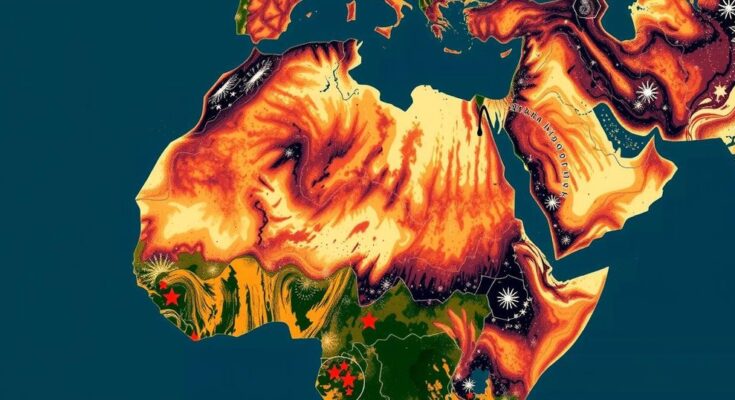The report outlines the climate change-related losses and damages impacting the agriculture and livestock sectors in the Sahel and Greater Horn of Africa. It provides new data on current and potential future impacts, emphasizing the need for adaptive strategies and support to address these challenges faced by local communities in recurrent crises.
The report titled “Bearing the Burden: Climate Change-Attributable Losses and Damages in the Sahel and Greater Horn of Africa” delves into the significant impact of climate change on these regions, particularly concerning agriculture and livestock sectors. Notably, it presents updated data highlighting both current losses and projected future damages stemming from climate-related weather phenomena. This compilation of findings aims to provide stakeholders with critical insights to formulate targeted responses and strategies to mitigate these adverse effects on livelihoods associated with pastoralism and agricultural practices.
Moreover, it emphasizes the urgent need for adaptive measures and support systems to safeguard vulnerable communities grappling with recurrent crises. The report serves as a call to action for policymakers, investors, and humanitarian organizations to prioritize climate resilience and implement sustainable solutions in the face of escalating environmental challenges.
Climate change represents a formidable challenge across the globe, with particularly severe implications for regions like the Sahel and Greater Horn of Africa. These areas are experiencing an increase in climate-related disasters, adversely affecting agriculture—one of the primary livelihoods for inhabitants. As droughts and erratic weather patterns become more frequent, understanding the economic ramifications through comprehensive data is essential. The report examines these dynamics with an emphasis on losses and damages faced by local communities, striving to inform meaningful policy intervention and disaster preparedness.
In summary, the report underscores the heavy toll that climate change exacts on the Sahel and Greater Horn of Africa, particularly within the agriculture and livestock sectors. The findings articulate the pressing need for effective climate adaptation strategies to protect the livelihoods of affected communities. As these regions confront ongoing weather-related challenges, prioritizing climate resilience, and recovery measures will be imperative for ensuring sustainable development and food security. Future actions must focus on bolstered support systems to mitigate these vulnerabilities.
Original Source: www.polity.org.za




